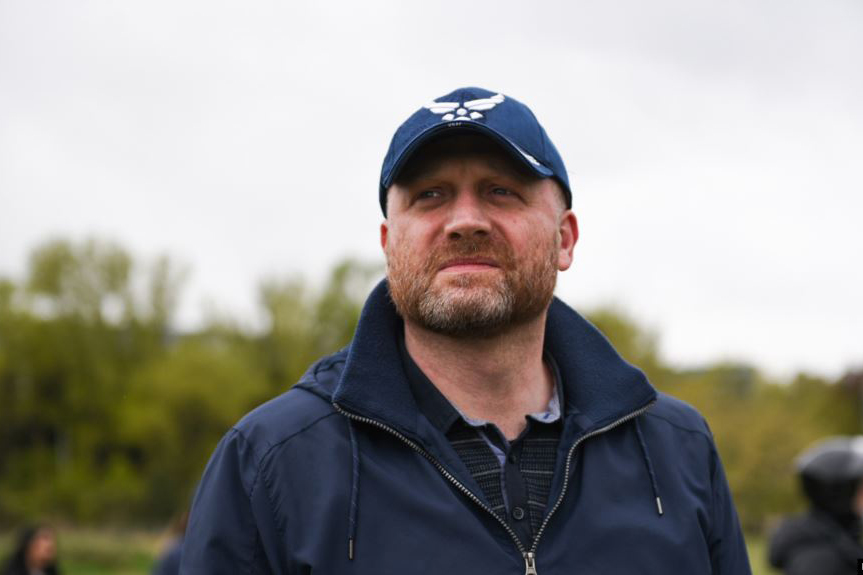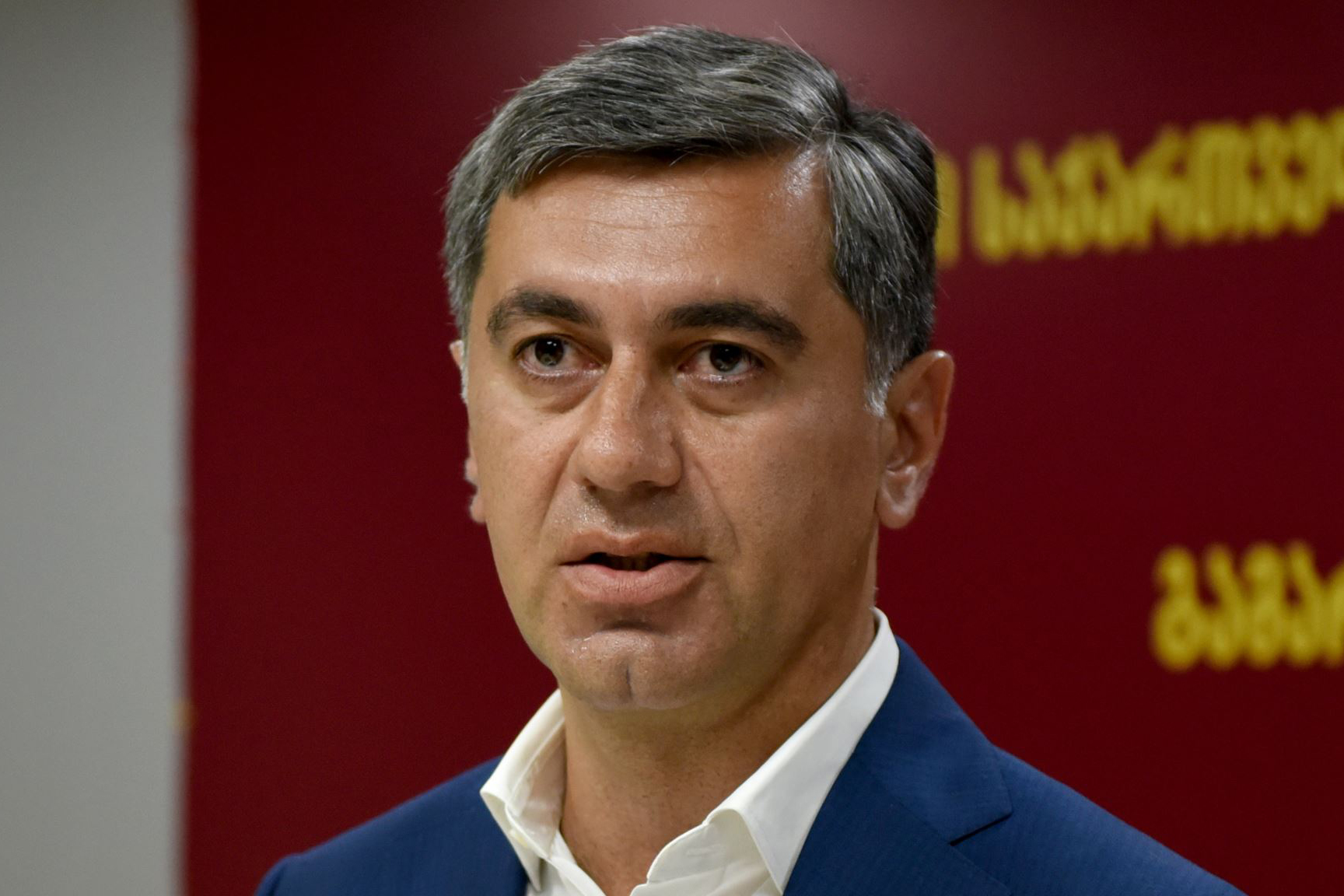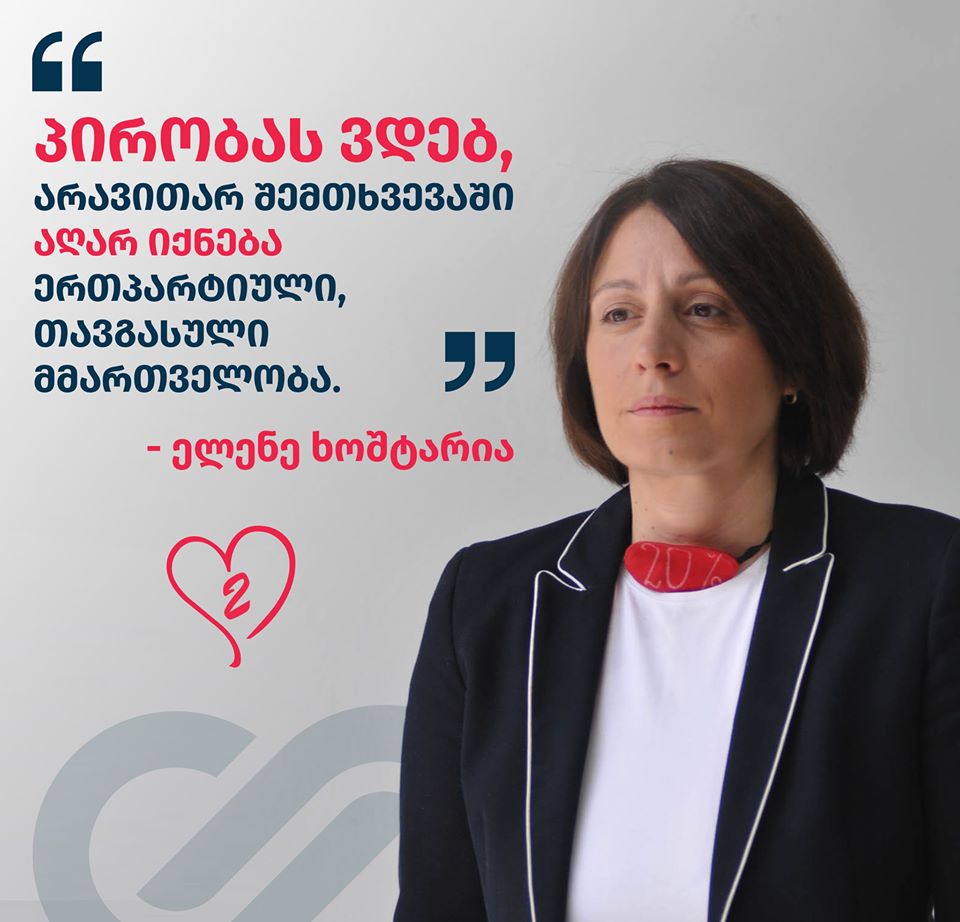Georgian opposition groups finalise electoral pact for Tbilisi candidates

A group of Georgian opposition parties has announced a joint list of majoritarian candidates to compete in the electoral districts of Tbilisi in October’s parliamentary elections.
While candidates will formally represent their own parties, the parties that have signed up have agreed not to field candidates opposing each other in a bid to mobilise voters against the ruling Georgian Dream party.
Shalva Natelashvili, Labour Party leader and the group’s majoritarian candidate in Tbilisi’s Nadzaladevi District, said the opposition had also vowed to ‘defend’ their and each others’ votes against electoral fraud.
On Tuesday, the group’s final two candidates in Tbilisi were announced — Zurab Girchi Japaridze from libertarian party Girchi in the Didube-Chugureti District, and ex-official Irakli Okruashvili, who chairs the For Victorious Georgia Party, in Saburtalo District.
From the opposition platform, only the United National Movement Party (UNM) will field two candidates in Tbilisi, Nika Melia in Gldani and Levan Khabeishvili in Samgori.
Giorgi Vashadze, a former UNM MP who now leads the Strategy Aghmashenebeli Party will run in Tbilisi’s Isani District.
Elene Khoshtaria from European Georgia will be the majoritarian candidate in Vake. Prominent lawyer Shalva Shavgulidze from the Free Democrats, which is running in an electoral bloc with European Georgia, will run in Mtatsminda.
European Georgia expressed disappointment after the Lelo party, whose leader Mamuka Khazaradze indicated earlier they would not challenge the party directly, eventually decided to field a candidate in Vake.
The opposition Coordinating Council took its latest shape last November after the ruling Georgian Dream party backtracked on their promise to reform Georgia’s electoral system.
So far, the platform has not gone further than the electoral pact, with no opposition groups agreeing to any potential coalition.
A new electoral system secured with an agreement on 8 March slashed the number majoritarian mandates in Georgia’s 150-member parliament from 73 to 30, with 120 seats assigned proportionally through party lists.
The move towards a more proportional system increases the chances for smaller parties to be represented in parliament while complicating any party’s attempt to gain a majority of seats.
Candidates with high negative rankings
The final two of the eight opposition majoritarian candidates for Tbilisi announced on Tuesday are both controversial figures in Georgia.
According to an IRI poll released on 12 August, Japaridze was the least liked politician among those asked about, with 73% having an ‘unfavourable’ opinion of him. His party, Girchi, had the third-highest unfavourable rating, with 25% saying they would not vote for them ‘under any circumstances’.
Girchi was also the most disliked political group, with an 83% negative rating, in polling by Edison Research cited by opposition TV channel Formula in mid-July.

A former UNM MP who formed Girchi in 2016, Japaridze has been vocal in his support for overturning Georgia’s restrictive drug policies. In 2018, Girchi won a case in Georgia’s Constitutional Court that outlawed all punishment for consuming cannabis.
Japaridze has also attracted those seeking deferment from one-year military service, offering priesthood in a mock theological school as a legal loophole.
He has also been highly critical of the government’s anti-coronavirus measures.
In the same IRI poll, 60% said they considered Irakli Okruashvili ‘unfavourable’, while only 1% of respondents said they would vote for his party if elections were held immediately.
For many Georgian voters, Okruashvili is mostly known as a former ally-turned-enemy of third Georgian President Mikheil Saakashvili.

Okruashvili had only several weeks to talk about his future political plans before being arrested and charged over group violence during anti-government rallies on 20-20 June night in Tbilisi.
The most prominent rights groups in the country said the prosecutions of Okruashvili and another former official, Gigi Ugulava were politically motivated. Both were ultimately pardoned by Georgian President Salome Zurabishvili in May.
Disagreements among the opposition
Despite forming an electoral pact, the parties involved in the Coordinating Council have not shied away from criticising each other.
On 14 August, David Bakradze, one of the leaders of European Georgia, said it would be unacceptable for their party to enter any coalition government with Mikheil Saakashvili or former ministers Ivane (Vano) Merabishvili and Zurab Adeishvili.
UNM have not denied they are considering Saakashvili, who currently serves as Honorary Chair of the party as their candidate for prime minister despite expected legal barriers.
Saakashvili, who currently holds only Ukrainian citizenship and is chair of Ukraine’s Council for Reforms, is formally a fugitive from Georgian justice.
Both he and Adeishvili have been convicted in absentia for multiple abuses of power. Unlike them, Vano Merabishvili served almost seven years in prison for crimes committed while in power but recently said he would not run for office.
In response to Bakradze’s statement, the UNM party were quick to accuse European Georgia of planning to form a coalition with Georgian Dream if they failed to secure enough seats.
In the latest IRI poll, UNM had the highest negative rating (29%) among other political groups, followed by Georgian Dream (25%).
European Georgia split from UNM in January 2017. The party’s leaders, have struggled to strike a balance between revisiting ‘mistakes’ while in power and offering a vision for the future.

Both European Georgia and Lelo, as well as Girchi, have been accused by the UNM of potentially helping Georgian Dream to form a government later this year.
According to the Constitution, the government cabinet is fielded by the prime ministerial candidate from the political group gaining most of the seats in an election. If they fail to be approved by a majority of MPs, at least 51 MPs would be able to nominate a minority government, which would also have to be approved by 76 MPs. If this again failed to pass, new elections would be called.







